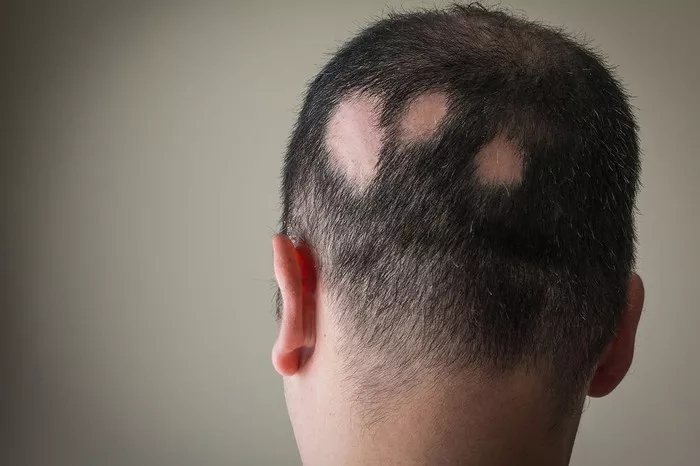Swimming is a popular recreational activity, especially during the warmer months, and many people enjoy the refreshing experience of a dip in the pool. However, concerns have arisen about the potential impact of pool chlorine on hair health, specifically whether it can lead to hair loss. In this comprehensive guide, we delve into the relationship between pool chlorine and hair, exploring the facts, potential risks, and preventive measures.
Understanding Pool Chlorine: The Basics of Water Sanitization
Chlorine is a common disinfectant used in swimming pools to eliminate bacteria, viruses, and other contaminants. While it plays a crucial role in maintaining water hygiene, its interaction with hair can raise questions about its effects on the health and integrity of hair strands.
1. The Science Behind Chlorine and Hair: Breaking Down the Bonds
Chlorine, when present in pool water, can have various effects on hair, primarily due to its oxidizing properties.
Oxidation of Hair Proteins: Chlorine can oxidize the proteins in hair, breaking down the molecular structure. This process can lead to dryness, brittleness, and potential damage to the hair shaft.
Stripping Natural Oils: Chlorine strips away the natural oils that coat and protect the hair, leaving it more susceptible to damage and dryness.
2. Chlorine’s Impact on Hair Texture: Dryness, Frizz, and Color Changes
While chlorine itself doesn’t directly cause hair loss, its effects on hair texture can be significant.
Dryness and Brittle Hair: Chlorine’s ability to strip away natural oils can leave the hair dry and more prone to breakage. Brittle hair is more susceptible to split ends and damage.
Increased Porosity: Chlorine can increase the hair’s porosity, allowing it to absorb more water. This can result in swelling of the hair shaft, leading to frizz and a loss of definition in natural curls.
Color Changes: For those with color-treated hair, chlorine exposure can lead to fading and changes in hair color. The chemical reactions can alter the pigments in the hair, affecting its appearance.
3. The Link Between Chlorine and Scalp Irritation: Potential for Hair Shedding
While chlorine doesn’t directly cause hair loss from the follicles, it can contribute to scalp irritation.
Dry and Itchy Scalp: Chlorine’s drying effect extends to the scalp, potentially causing dryness and itching. Persistent scratching or irritation may lead to hair shedding.
Sensitivity and Allergic Reactions: Some individuals may be more sensitive to chlorine, experiencing allergic reactions or irritation. Prolonged exposure to an irritated scalp may contribute to hair shedding.
4. Chlorine and Pre-existing Hair Conditions: Aggravating Factors
Individuals with pre-existing hair conditions may find that chlorine exacerbates these issues.
Damaged Hair: If the hair is already damaged or weakened, chlorine exposure can further compromise its integrity, potentially leading to increased breakage.
Color-Treated Hair: Those with color-treated hair may experience accelerated color fading and changes due to chlorine exposure.
5. Preventive Measures: Safeguarding Hair Health in the Pool
While the potential effects of chlorine on hair are evident, there are practical steps to minimize its impact and protect hair health.
Pre-Swim Rinse: Prior to entering the pool, rinse your hair with clean, non-chlorinated water. This helps saturate the hair, reducing its ability to absorb as much chlorinated pool water.
Use a Swim Cap: Wearing a swim cap creates a protective barrier between your hair and the pool water, reducing direct exposure to chlorine.
Post-Swim Care: After swimming, promptly rinse your hair with fresh water to remove chlorine residues. Follow up with a gentle shampoo and conditioner to restore moisture.
Deep Conditioning: Regular deep conditioning treatments help nourish and replenish moisture in the hair, counteracting the drying effects of chlorine.
Conclusion: Balancing Pool Enjoyment and Hair Health
While pool chlorine can have noticeable effects on hair texture and scalp health, it’s important to distinguish between these impacts and actual hair loss. Understanding the potential risks and implementing preventive measures allows individuals to enjoy swimming without compromising their hair health. Whether it’s pre-swim rinses, swim caps, or post-swim care routines, incorporating these practices can help strike a balance between pool enjoyment and maintaining vibrant, healthy hair. By staying informed and adopting protective measures, individuals can confidently make a splash in the pool without worrying about the long-term effects on their precious locks.

